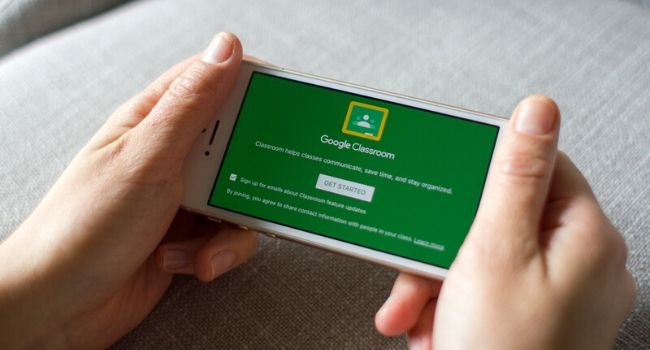
Google Facing Lawsuit Over Collection of Facial Scans, Personal Data From Children
School districts are increasingly turning to Google for online classroom tools during the coronavirus pandemic, but the company has faced scrutiny for the data it collects on students.
- By Haley Samsel
- Apr 07, 2020
An Illinois parent is suing Google on behalf of his two children for collecting biometric data, particularly facial scans and “voiceprints,” from millions of students through its educational services.
The lawsuit, which is seeking class action status, was filed last Thursday in a San Jose, Calif. federal court, CNET reported. The father, Clinton Farwell, claims that Google collects data through a program that provides Chromebooks and free access to G Suite for Education apps, including email, calendar and Docs services.
Under the Illinois Biometric Information Privacy Act (BIPA), the collection of facial scans, fingerprints or other biometric data without providing advance notice, obtaining written consent and disclosing how the data will be used. In recent years, Illinois residents have filed class action lawsuits against tech giants with some success, including a $550 million settlement with Facebook in January.
The Google lawsuit claims that the data collection program violates BIPA as well as the federal Children’s Online Privacy Protection Act (COPPA), which requires parental consent when companies collect personal data on users who are younger than 13 years old.
"Google has complete control over the data collection, use, and retention practices of the ‘G Suite for Education’ service, including the biometric data and other personally identifying information collected through the use of the service, and uses this control not only to secretly and unlawfully monitor and profile children, but to do so without the knowledge or consent of those children's parents," the lawsuit reads, according to CNET.
Read More: New Bill Would Update Children’s Online Privacy Law In Wake Of YouTube, TikTok Controversies
In February, New Mexico Attorney General Hector Balderas sued the company for similar allegations relating to COPPA violations, including the collection of student locations, web histories, search histories, contact lists and voice recordings. YouTube, which is owned by Google, resolved a COPPA lawsuit of its own in September 2019 with a $170 million settlement and an agreement to make changes to its children’s content system.
Usage of Google’s tools by students, teachers and staff has rapidly increased as districts have been forced to move instruction, exams and operations online during the COVID-19 pandemic. Google Classroom downloads have increased to 50 million, and the company has partnered with the California state government to donate 4,000 Chromebooks to students in need.
Farwell is seeking damages of $1,000 to each member of his children’s class for BIPA violations committed “negligently” and $5,000 each for violations committed “intentionally or recklessly,” according to the complaint. Google has declined to comment on the lawsuit.
About the Author
Haley Samsel is an Associate Content Editor for the Infrastructure Solutions Group at 1105 Media.